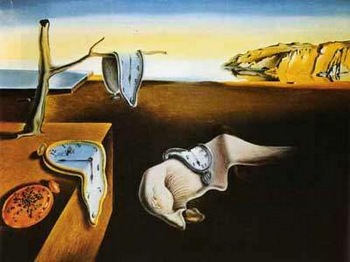Can We Only Dream Of Faces We've Seen In The Past?
"We can only dream of faces we've seen in the past, whether we actively remember them or not. The brain cannot invent these."
Do you agree with this quote? - From Caspi

Rebecca Casale: Well I think this quote is interpretive. On the one hand, yes your brain can "invent" a new face, for instance by mashing different features of different people together. Or by making the features preposterous: adding a giant mole, changing the eye color to purple, and so on. Or let's go all-out: ten eyes down the left, eleven eyes down the right, a giant nose and a mouth coming out of the nostril. I'm confident I've never seen that guy before.
On the other hand, our dreams are drawn from real world experiences and unconscious interpretations. Even our imagination, in dreams and in waking life, is based on our attempts to thrust remembered images into new realms.

Salvador Dali, perhaps the most famous surrealist painter, conjured up elephants with thin stilt-like legs and melting clocks. Despite this remarkable creative expression, we have to admit that elephants and clocks are not light years away from our own reality. Even our imagination is based on concepts derived from the waking world.
To illustrate this limitation within the dreamspace: congenitally blind people do not dream visually as way we do, because they don't have a visual palette from which to "paint" their dreams. Instead they dream as they "see" the world, through their other senses. It's not possible for them to visually dream new faces, because they've never seen any before.
So I think what the author was trying to say is that our imaginations, however spectacular, are still limited to our realm of experience. Thus our dreams, too, are mental extensions of our waking experiences.
Perhaps the analogy of dream faces was not the best choice to illustrate the point, because faces are made up of composite features. It's not hard to imagine drawing different features from our memories and then creating a new face with mix-and-match techniques.
However they are making a fundamental point about the nature of creativity. Is it really possible to have an original thought? To bring this home, perhaps the quote could be improved to say:
"We can only dream of colors we've seen in the past, whether we actively remember them or not. The brain cannot invent these."
















